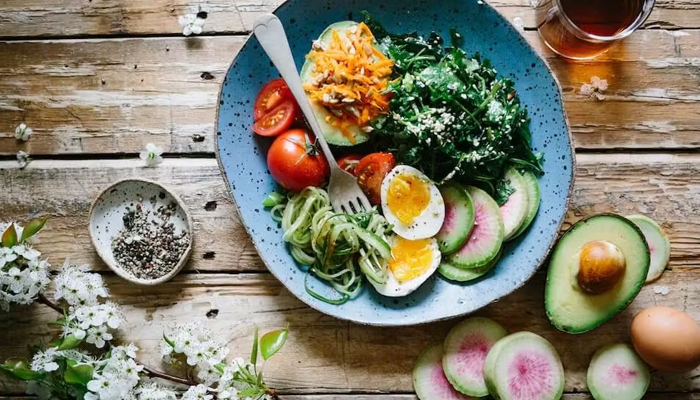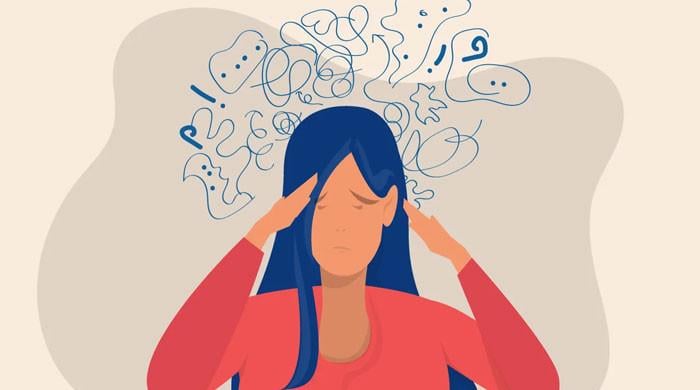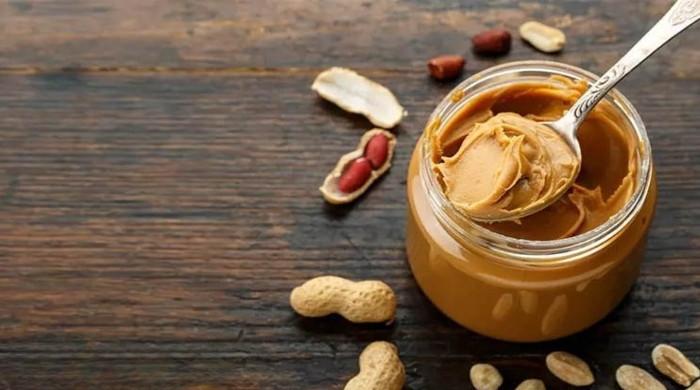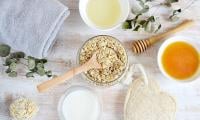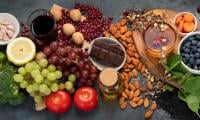Debunking 10 toxic myths about food to help your relationship with it
A TikTok video recently went viral for debunking over common myths about food
A registered dietitian and nutritionist Kate Regan, who goes by the username of @WholesomeChickNUtrition on TikTok, recently went viral for debunking over 15 common myths about food that are not true.
Most of us are guilty of having a toxic relationship with food, mostly stemming from insecurity and body image issues. So-called influencers on social media platforms with their own rules about food and diet do not do anything to make it easy.
Hence, Regan’s video coupled with her qualified status in the field was a breath of fresh air when it went viral on the video platform.
Here are 10 false myths about food that we must let go of to restore our relationship with it:
1. Dairy is not inflammatory:
Speaking to Buzzfeed, Regan explained that contrary to popular myth about dairy, they may actually “have a neutral to beneficial effect on biomarkers of inflammation.”
However, it may not fend so well for you in case of a milk allergy or lactose intolerance.
2. "Colostrum is a weird wellness trend and you do not have to partake."
Colostrum is a first form of breastmilk released by mammary glands, which contains immune components to help establish a baby’s immune system after birth. Internet has been led to believe that it might also help in skin regeneration, weight loss, and anti-aging effects, prompting them to overspend in colostrum powder taken from cows.
However, experts have disputed any of the benefits, noting it has only sufficient nutrition to sustain newborns.
3. "It's better to get your nutrition from food than from greens powders or 30 different supplements."
According to Harvard Health, vitamins and minerals are more present in solid food, while also accompanied by other micronutrients, including hundreds of carotenoids, flavonoids, and antioxidants.
4. "You're probably not bloated because you have leaky gut, you might just not be eating enough food."
“'Leaky gut syndrome' is a term used commonly in the wellness world even though it is not a recognized medical diagnosis," Kate told the outlet.
"Since bloating is a supposed symptom of leaky gut, some may think that’s what they are struggling with when, in reality, a much more likely cause is either not eating enough food or not eating a wide enough variety of food," she explained.
5. "Cheat days are essentially planned binges."
According to a Canadian study done in 2022, the concept of “cheat days” promote an unhealthy relationship with food, and is linked to “greater eating disorder behaviors and psychopathology, including binge-eating episodes.”
6. "White rice is not all that different from brown rice, so eat whatever rice you enjoy."
Besides the “slight advantage” brown rice have over white rice, the differences are not hugely significant, according to Healthline.
7. "Genetics account for up to 70% of your weight."
Those stressing out over their spontaneous weight gain shouldn’t be so hard on themselves that they go long periods without eating or avoid eating altogether.
Researchers suggest that the genetic influence makes for about 70% to 80% of a body’s weight, contributing to one’s appetite, satiety, metabolism, food cravings, predisposition for obesity and more.
8. "You're allowed to eat past 8 o'clock at night. The body's digestive system doesn't just shut down."
Kate explained that the doctor’s advice against eating and going straight to bed is “rooted in fatphobia and places shame on people who eat before bedtime.”
"Honoring your hunger, no matter the time of day, is important in order to build trust and connection with your body,” she told the outlet. “Your digestive system doesn’t just shut off at a certain time of the night.”
9. "BMI is a silly way to measure health and self-worth."
Critics describe the method of BMI as a “flawed, crude, archaic, and overrated proxy for health" as it does not take into account muscle mass, bone density, overall body composition, and racial and sex differences.
10. And lastly, "It's really not important to know what your weight is unless you're going under anesthesia or your doctor needs to dose a medication appropriately."
-
Benefits of magic potion that is Apple Cider Vinegar
-
Why too much caffeine can jeopardise your health
-
Refreshing and Nutritious: Healthy Drinks for Your Perfect Lifestyle
-
What is Cortisol belly? How can you get rid of it?
-
Top five reasons to add oats in your beauty regime
-
Power of Sunblock: Your Key to Radiant Skin and Healthier Living
-
Impact of Flavonols on mortality rate, cancer, cardiovascular disease
-
Cosy Cardio: Comfortable fitness trend anyone can follow
